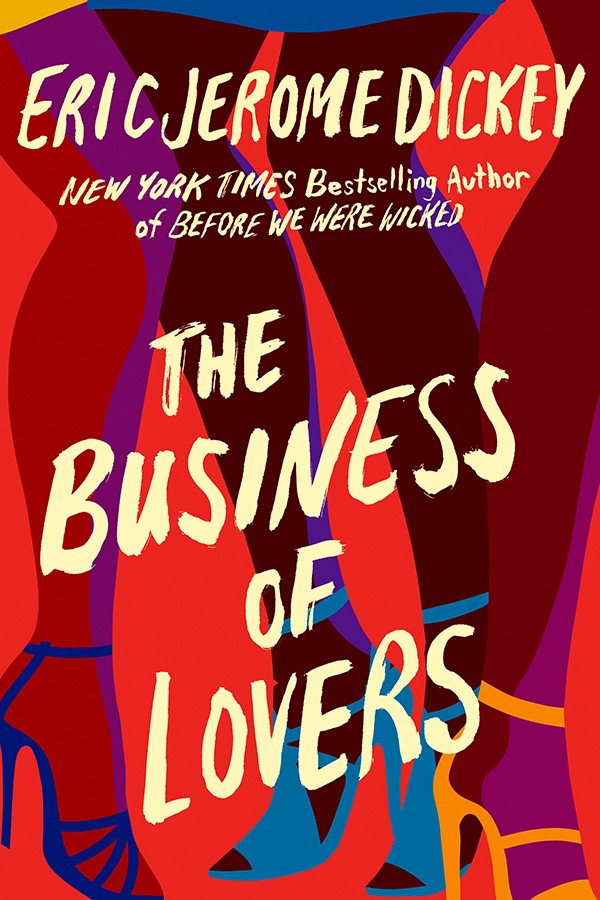This one is for the bookworms.
In this edition of our summer reading guide, the Flyer staff has dutifully compiled a list of local (and farther afield) tomes we think will wrinkle your brain or send your imagination on a ride. From Memphis to Mississippi to Nashville, this list brims with fiction and nonfiction, volumes of poetry, and two examples of YA fiction — a bildungsroman and a dystopian thriller.
So enough delays — we hope you enjoy this list of some of our favorite books from 2021.
Maps for the Modern World
by Valerie June Hockett
(Andrews McMeel Publishing, $14.99)
This is your time.
Enjoy this life.
Learn its lessons.
You will never come this way
In this same body
Again.
— “Sacredness of All Things”
Some of you may have met Memphis songstress Valerie June many moons ago, before the world met her, when she gigged in town and worked at Maggie’s Pharm. She radiated an inner light. Her warmth stretched across the room like a hug. It was as if there were secrets to the universe that she knew the answer to.
These days, she’s gracing late night TV and some of the biggest venues and festivals in the nation (and the world, when international tours are a thing). Browse her Instagram, and you’ll see that knowing smile, read of her meditations and yogic rituals, her ceremonial offerings of gratitude in alignment with a full moon, deep in the woods or alongside a flowing stream — where she finds harmony between herself and Mother Earth. A harmony that exists for us all.
In her life, and in her book of poetry and original illustrations, Maps for the Modern World, June acknowledges that all humans suffer — that “somewhere at every moment there lives a tragedy,” but, she muses, if we sit still — very still — and become more aware of our interconnectedness with all things, decide which seeds we wish to water (personal or within our communities), we can and will endure, embracing each precious moment as we go. — Shara Clark
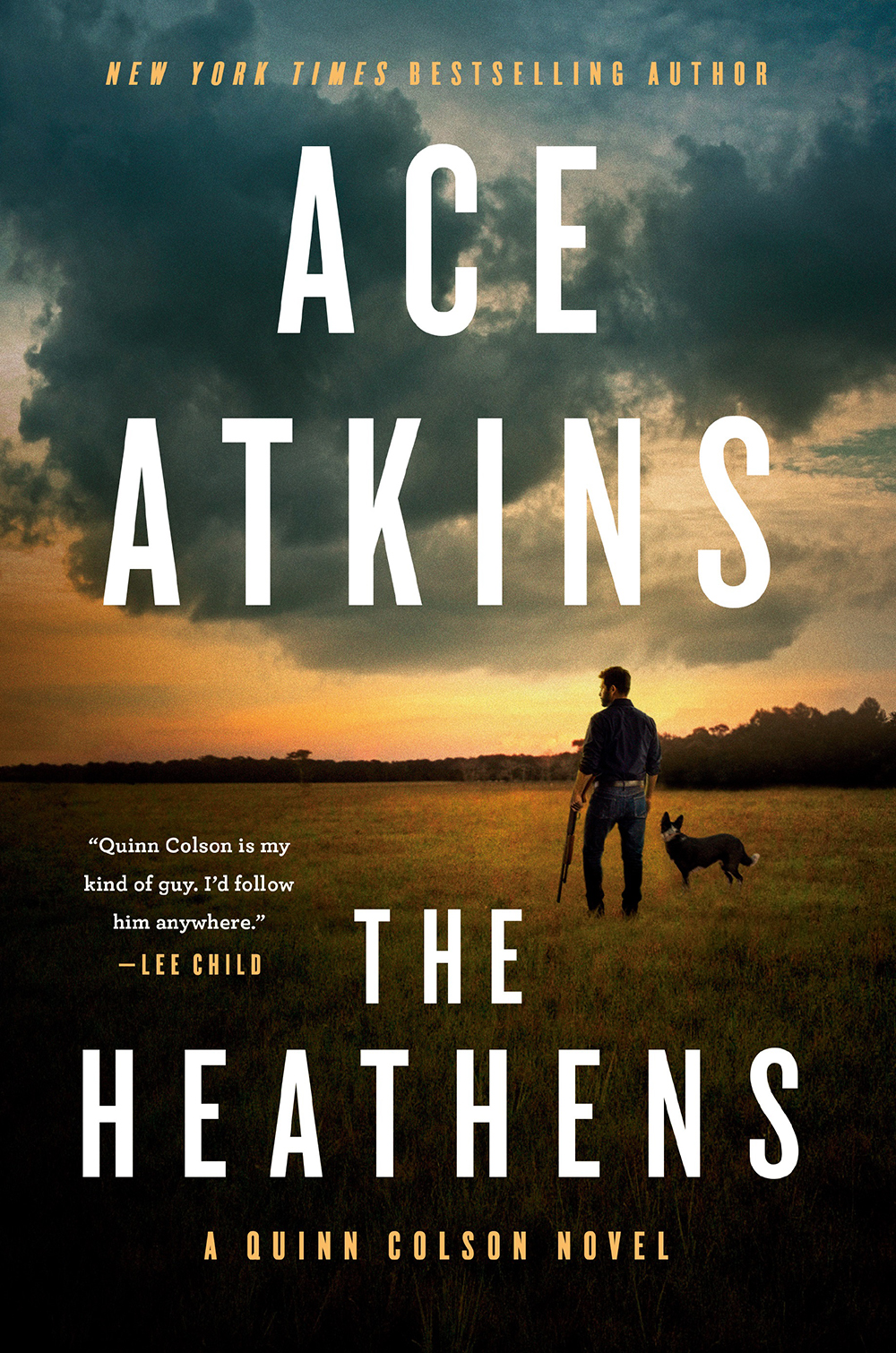
The Heathens
by Ace Atkins
(G.P. Putnam’s Sons, $27 hardcover)
Things are heating up in Tibbehah County again, and Quinn Colson has really got his hands full this time around. The Heathens is Oxford writer Ace Atkins’ 11th tale featuring the wild and wooly denizens of his fictional North Mississippi county and their intrepid Sheriff Colson, and it hits all of Atkins’ trademark notes; meaning, it delivers satisfying dollops of action and suspense.
The tale centers around young Tanya Jane Byrd, who is suspected in the brutal murder of her mother. Before she can be brought to justice — or some semblance of it — she scoots off for parts unknown in a stolen minivan with her boyfriend, her 9-year-old brother, and her best friend Holly.
Colson gives chase, as do the real killers. (You knew there’d be real killers, right?) The plot is twisty and quirky, but the best part of Atkins’ Tibbehah County tales is usually the insanely weird and often-violent supporting cast. One suspects these bottom-of-the-gene-pool types — Chester Pratt, Chastity Bloodgood, Johnny T. Stagg, to name three — are probably based on real-life counterparts, with some exaggeration, of course.
The Heathens is a fast-paced page-turner, perfect for summer. Just stay out of Tibbehah County if you know what’s good for you. — Bruce VanWyngarden
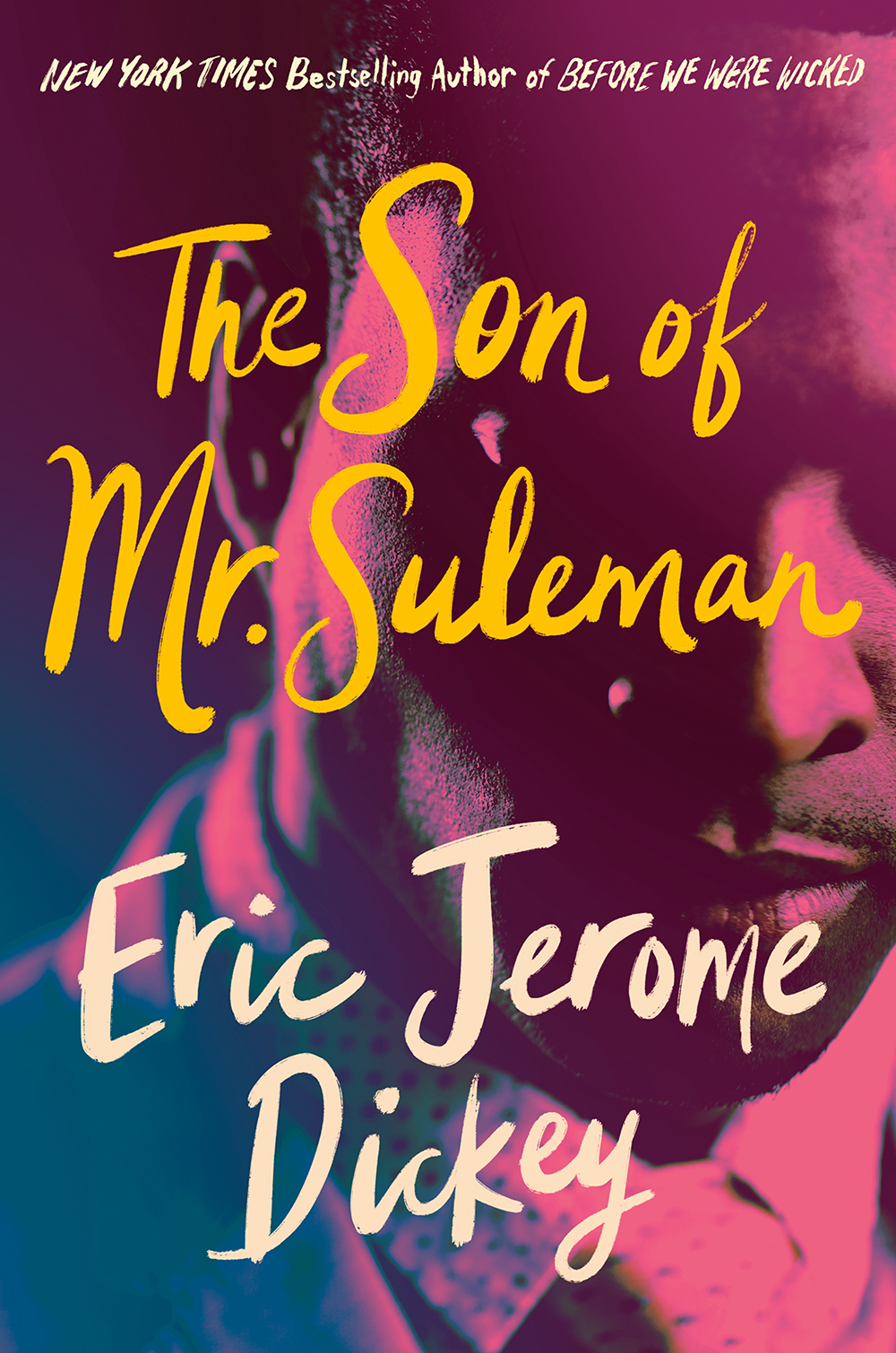
The Son of Mr. Suleman
by Eric Jerome Dickey
(Dutton, $27 hardcover)
The new novel by Memphis-born New York Times bestselling author Eric Jerome Dickey was published posthumously. Dickey passed away in January of this year, but his final novel, published in April — one of 29 written by the prolific wordsmith — stands as a last gift to his many fans.
“When gods became bored in heaven they walked among mortals.” So begins The Son of Mr. Suleman, with what feels like divine poetry. The novel follows Professor Pi Suleman, a Black man working as an adjunct professor in the final throes of Trump’s America. Pi must navigate the power dynamics of academia as well as confront a blackmailer, even as he also embarks on a whirlwind romance with the beautiful London-to-Memphis transplant Gemma Buckingham. Then, upon learning of his absentee father’s death, Pi is summoned to Los Angeles to collect his inheritance and learn about his famous father, a celebrated writer who the world knew better than Pi himself did.
The Son of Mr. Suleman deals with weighty concepts — racism, power dynamics, culture differences, politics, love, and death — but not at the expense of true-to-life prose, steamy romance, or a propulsive plot. And the pages are dotted with references to the Bluff City and its history. “That’s scary,” Pi tells Gemma at one point. “Your mood turned like Memphis weather in wintertime.”
The dialogue rings true, and the ending, when it comes, is a happy one made authentic by the acknowledgement of life’s many complexities. — Jesse Davis
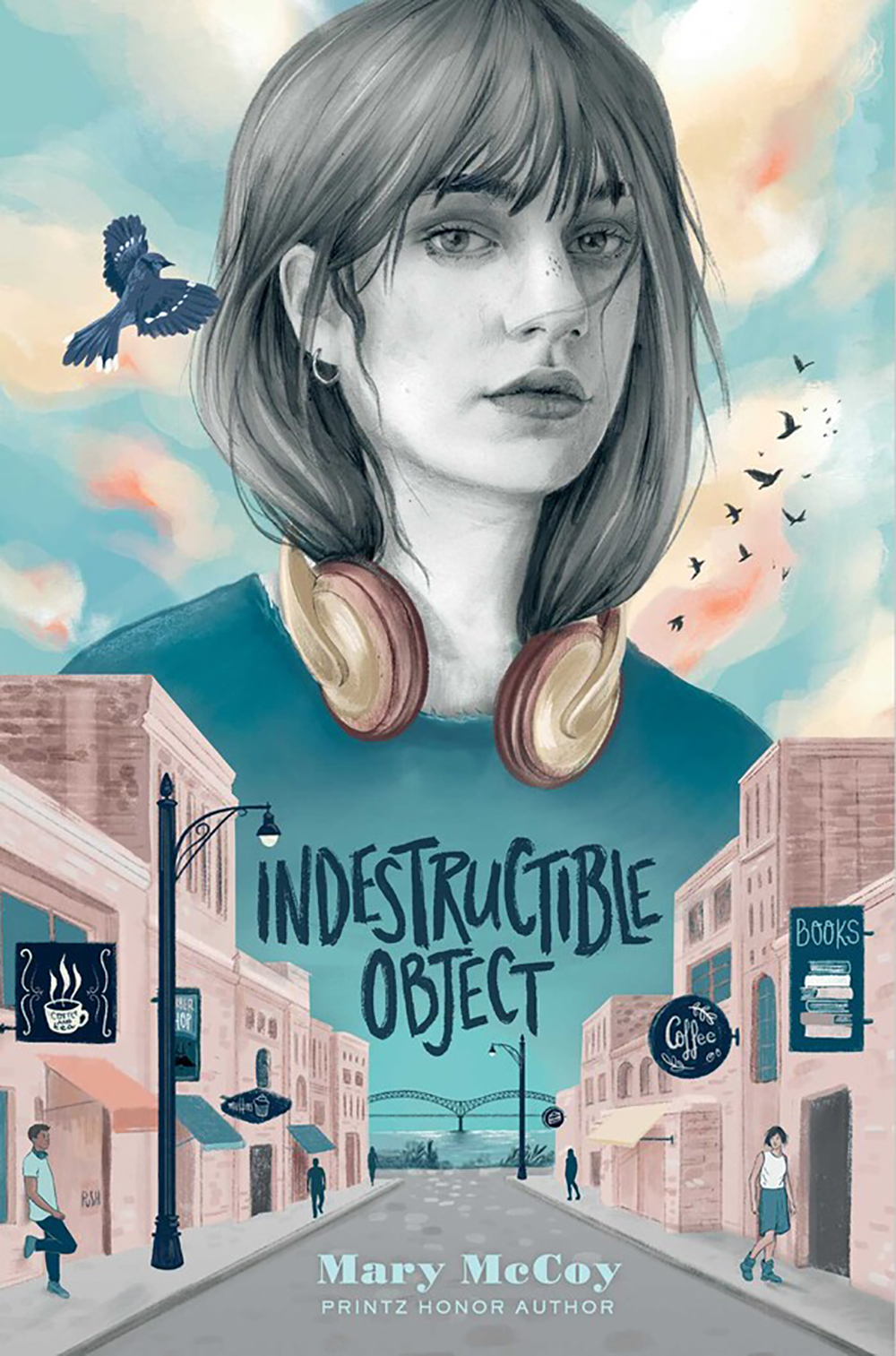
Indestructible Object
by Mary McCoy
(Simon & Schuster, $18.99 hardcover)
Written by Mary McCoy, Printz Honor author and Rhodes College alum, this YA novel embraces what it’s like to come of age in Memphis. Lee Swann, a recent high school graduate, has always lived in the Memphis art scene and can’t imagine her life anywhere else. She even plans to attend college in Memphis, but a break-up with her long-term boyfriend, followed by her parents’ announcement of their separation, leaves her in a crisis of identity and purpose. Unable to cope with the present, Lee, with the help of some friends, turns to the past and to her love of podcasting to tell her parents’ love story, her origin story. Along the way, Lee uncovers secrets about her family, her friends, and herself.
Told from Lee’s perspective and interspersed with transcripts from her podcast, the novel explores themes of art, friendship, family, romance, and love. McCoy’s writing is funny and self-aware yet raw as its plot is brought to life by the complicated and flawed relationships among the diverse set of lovable characters. And for someone who typically avoids any novel marketed as a rom-com on top of being a YA, I found myself rooting for the characters so much so that I read the book embarrassingly quickly. (To be clear, I have nothing against rom-coms. I love a good rom-com movie, but I hold my books to a different standard. Or maybe that’s what I tell myself, so I don’t feel like a book-snob.) Part of the appeal of a rom-com novel is its predictability, but McCoy subverts that predictability enough to keep up the reader’s interest without breaking the rom-com contract of a happy ending. We just get there in an unexpected way, and even the ending itself is unexepected. As such, Indestructible Object is perfect for anyone — book-snob or not, young adult or not — looking for an easy-to-read, delightful summer novel. — Abigail Morici
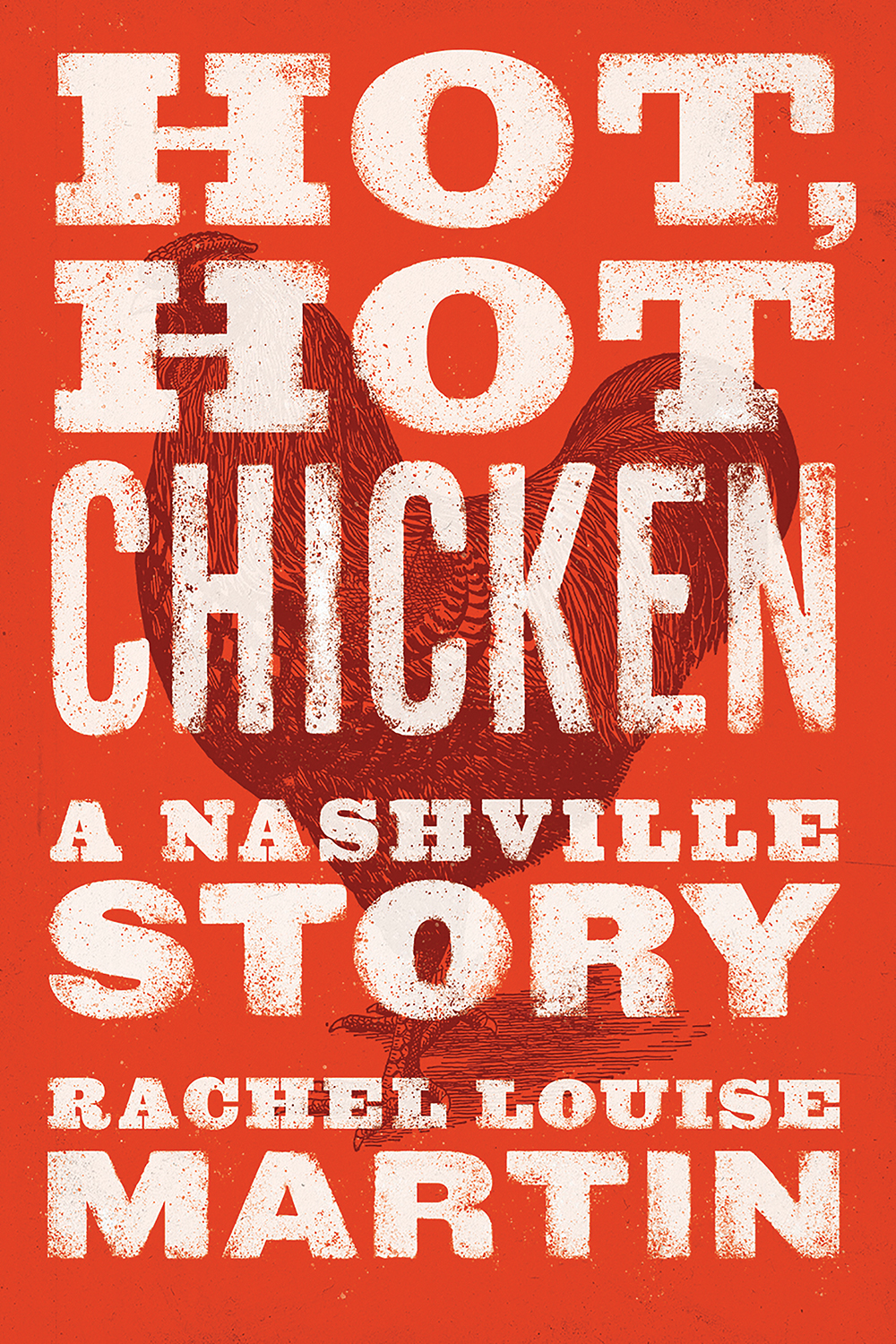
Hot, Hot Chicken: A Nashville Story
by Rachel Louise Martin
(Vanderbilt University Press, $19.95)
We’ve all tried that wonderful poultry inferno that is the Nashville specialty of hot chicken (if you haven’t, you should). The spiced flaming bird came to Memphis a couple years back with the opening of Hattie B’s, but hot chicken identifies as a staple of our neighbor three hours to the east. But as is the case with many iconic American dishes, the line between food and folklore is blurred. In Hot, Hot Chicken: A Nashville Story, Rachel Louise Martin dives into the mythology surrounding the dish and how hot chicken came to be.
But Martin’s book reaches for greater heights than just a focus on Nashville spiced meat. Hot chicken has a long and complex history that is intertwined with Nashville’s growth over the past century and inexorably linked with the city’s Black population. The legend goes that a jilted wife of James Thornton Prince created the dish in a fit of rage to punish him after a night out cheating, but apparently Prince loved the flaming-hot chicken so much that he told all his friends about it and eventually opened a restaurant to serve it. The James Beard-recognized business is run today by his great-niece, André Prince Jeffries, but the identity of the original “chef” is a puzzle.
The dish’s origins present a mystery for Martin to unravel. Which woman first made the dish? As a womanizer, Prince left many viable candidates to be the inventor of hot chicken. But the difficulty in pinning this down is the sadder side of the tale. It’s the story of Black families and communities being torn apart for the sake of new developments in Nashville, and how much of Black history in America has been intentionally erased or simply left unrecorded. So don’t go into Hot, Hot Chicken expecting a simple food parable. Martin weaves a tale of the history of Nashville itself, with all the social, political, and culinary issues that entails. — Samuel X. Cicci
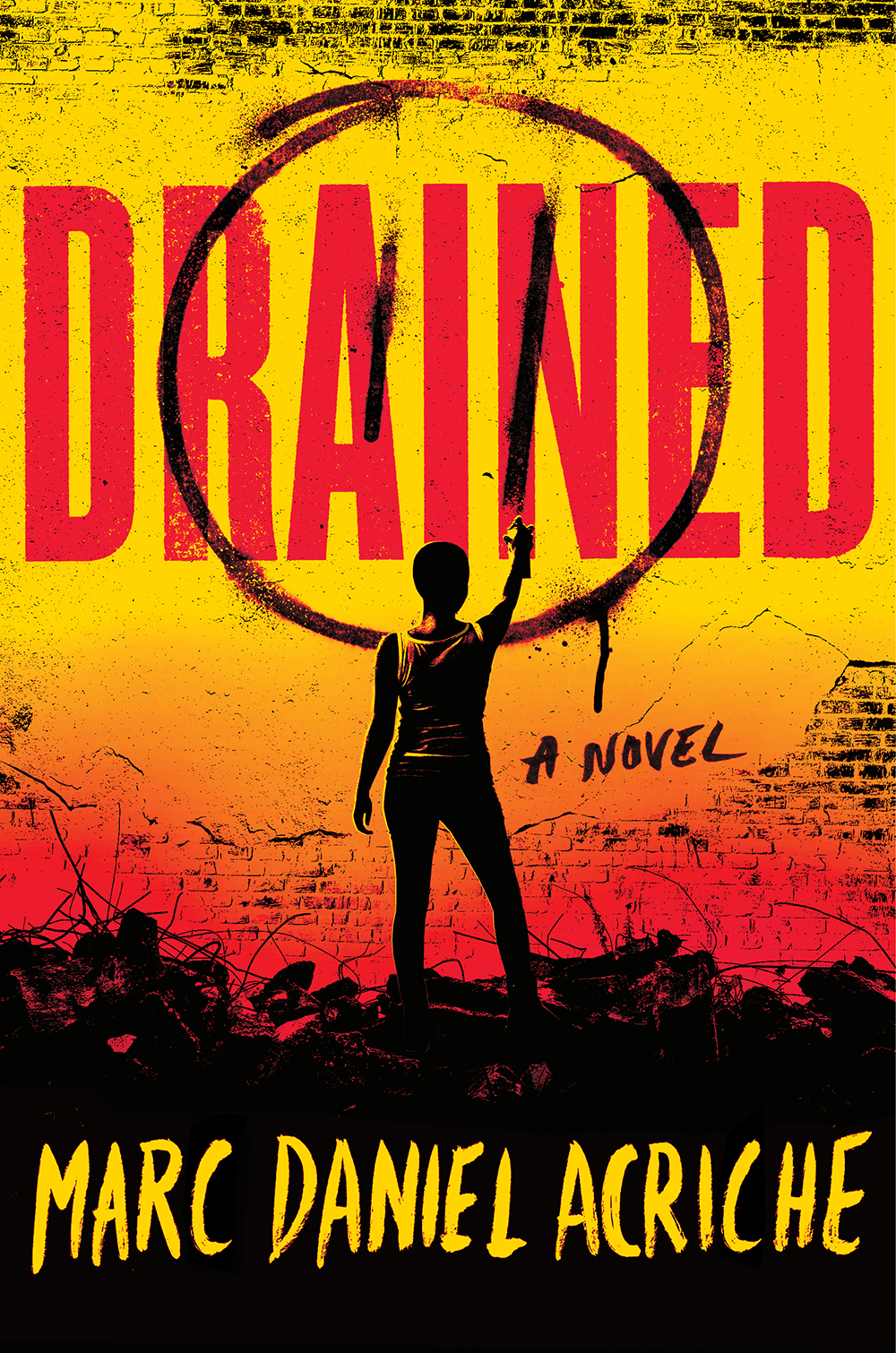
Drained
by Marc Daniel Acriche
(Sunken Island Books, $14.99)
Predicting the future is hard and getting harder. In a world of 7 billion people and counting, there are a lot of moving parts to keep track of. In the sci-fi YA novel Drained, Marc Daniel Acriche builds a convincing New York City of 2048 by not ignoring the elephant in the future room: climate change. Manhattan is still a teeming wonderland of towers, as long as you’re north of the “light border.” That’s where teenage Casey lives and attends school at the exclusive Roosevelt Prep. Her best friend Jennifer is the daughter of Michael Hargrove, the man destined to be the next mayor of the decaying city. Casey’s father was a respected DA, until he mysteriously vanished a year ago. He’s not the only person who is missing. Jennifer’s boyfriend Martin disappeared from his home in the section of the city where electricity is intermittent, at best. When the friends go looking for him, Casey uncovers a plot by Hargrove to build his private militia into an army of mind-controlled soldiers. She must tap into bravery and resourcefulness she didn’t know she had to save what is left of the world.
Unlike the extravagant villains of The Hunger Games, Hargrove is a recognizable American politician whose glad-handing exterior hides the heart of a brutal tyrant. Casey is an urban Katniss Everdeen whose battlefield is her own mind. The technology in Acriche’s world is all too plausible, given Mark Zuckerberg’s and Elon Musk’s fascination with brain implants. Most plausible of all are the games of high-tech, high-stakes hide-and-seek among the drowned streets of New York. “It was October, it was well over ninety degrees, and it had been like this for days,” Acriche writes. Drained is a fast-paced novel of post-cyberpunk action that reads like a weather report from the near future. — Chris McCoy
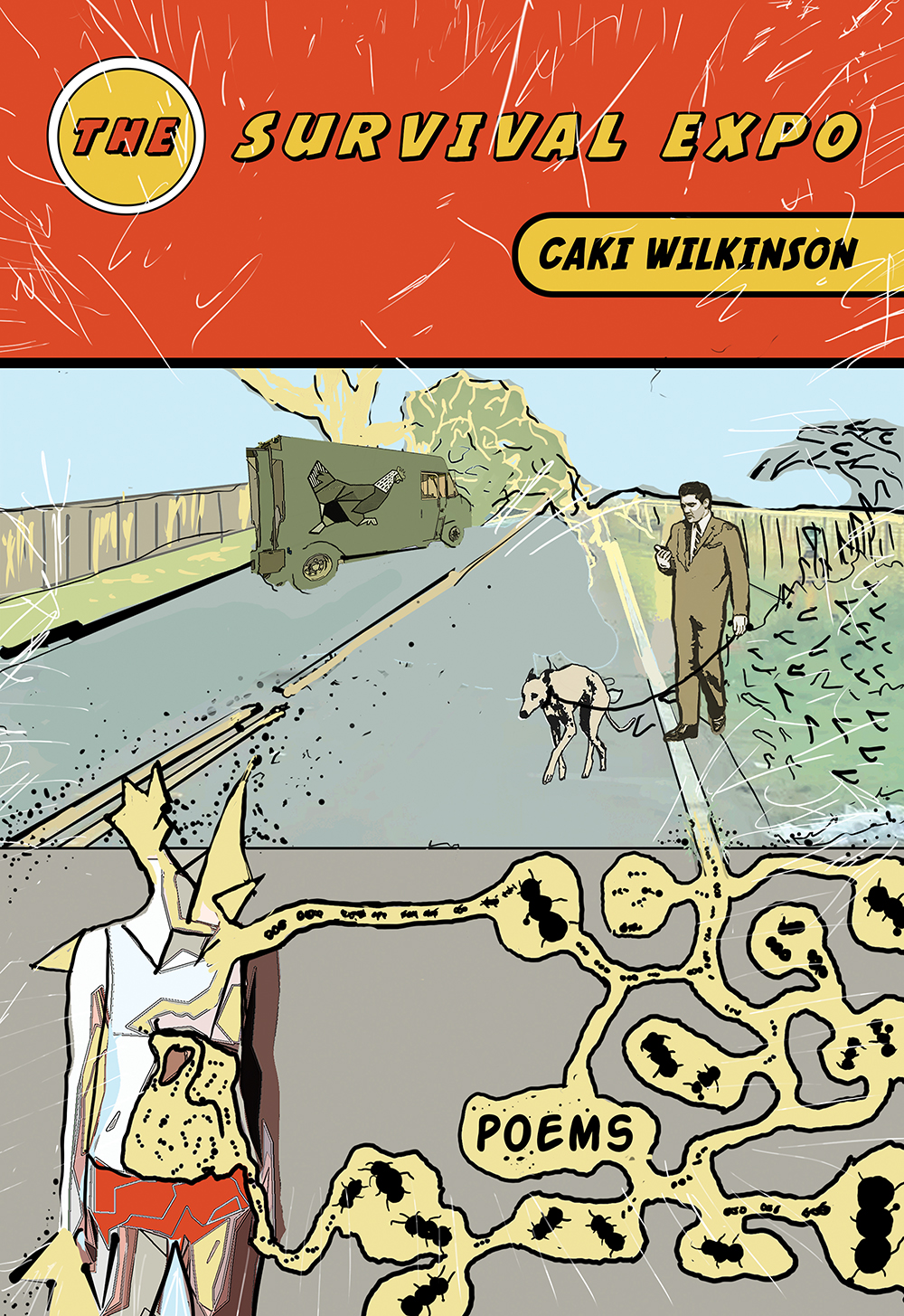
The Survival Expo
by Caki Wilkinson
(Persea Books, $15.95)
In this book of poetry, there is a recurring character named Hope. “Hope Comes to Elvis Week,” “Hope Brings Back Half a Rack of Ribs,” and “Hope and Superstition” are just a few poems featuring this character. You might be starting to get a picture of Hope. Hope boxes, picks up shifts at Wendy’s, and steals. She’s more familiar than we’d like to admit, perhaps even a part of our own id, ego, and super-ego.
The two standout poems for me were “Flyover Country” and “Georgics.” The former resonates with me, quite simply, because I love to drive. It spoke to me by listing places between Memphis and Bristol. Each line has four city names. I struggle to make them make sense in some way — even if they shouldn’t, I make them make sense. The last line: “Needmore Prospect Liberty Moons.”
The latter, “Georgics” seems to allude to a poem published by Virgil in 29 B.C. about agriculture. It has four parts. Wilkinson’s poem by contrast admits that she is bad at husbandry. Okay. Fine. And yet, Wilkinson’s poem cultivated another part — a part five. In part five you get the all-too-familiar by now kick in the teeth. Oh, yes. The beauty of Wilkinson’s work can be found in the gut-wrenching punches. In part five, she ruins her relationship “like all the others.”
Wilkinson is a brilliant poet who takes her reader more often than not on a trip “in a borrowed car with a guy called Nuh-Uh.” You can meet Nuh-Uh in “Juvenilia.” — Julie Ray
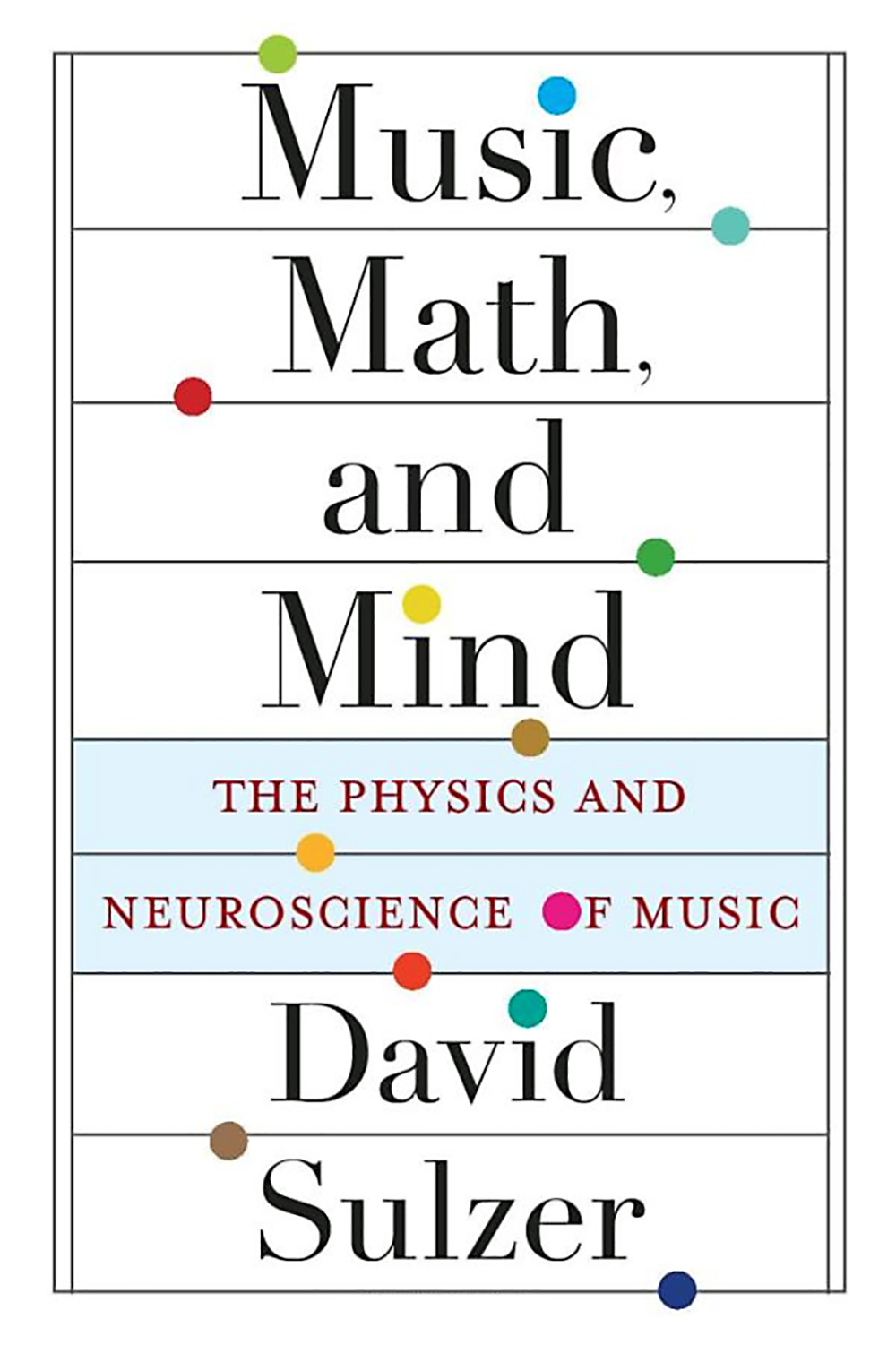
Music, Math, and Mind: The Physics and Neuroscience of Music
by David Sulzer
(Columbia University Press, $27.99 paperback)
What is this thing called music? Readers devoted to the auditory arts will delight in this 300-page exploratorium, which covers every facet of the sounds we register as meaningful: how a sound wave propagates through air; why the same pitch played on different instruments registers as “violin” versus “flute”; how simple math — with whole numbers! — leads to scales, simply by halving or otherwise dividing lengths of string or pipe. Delving further, Sulzer explains why some sounds present as “noise” versus “notes,” or how compelling rhythms can be better understood mathematically. The grand finale draws on Sulzer’s work as a neurobiologist at Columbia University, as he explores the physiology of brainwaves and neuronal clocks, or of sound waves moving from the ear to the brain and thence to the emotions.
The real accomplishment is how Sulzer, aka the prolific musician and composer Dave Soldier, relates all this in a jaunty, conversational manner. Drawn into the mystery, you barely realize that you’re learning some rather heady stuff. The listening guides at the end of each chapter bring the concepts to life with startlingly eclectic examples, including Bo Diddley (with whom Sulzer played in his youth), Steve Reich, Ethiopian krar music, Elvin Jones, Brahms, Pauline Oliveros, Thai elephants, Junior Kimbrough, Ravi Shankar, Celia Cruz, and flamenco, to name a few. All told, John Cale’s endorsement rings true when he calls it “an encyclopedia of our tonal imagination.” — Alex Greene



 Burke’s Book Store
Burke’s Book Store 
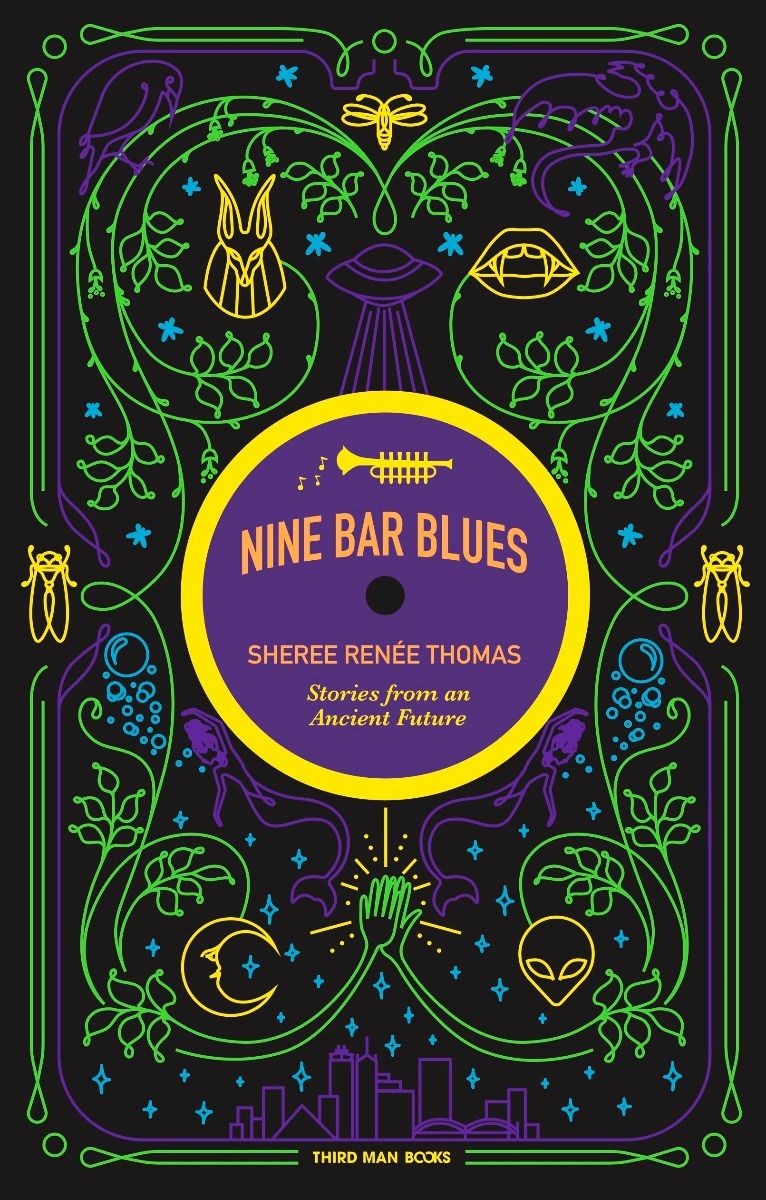

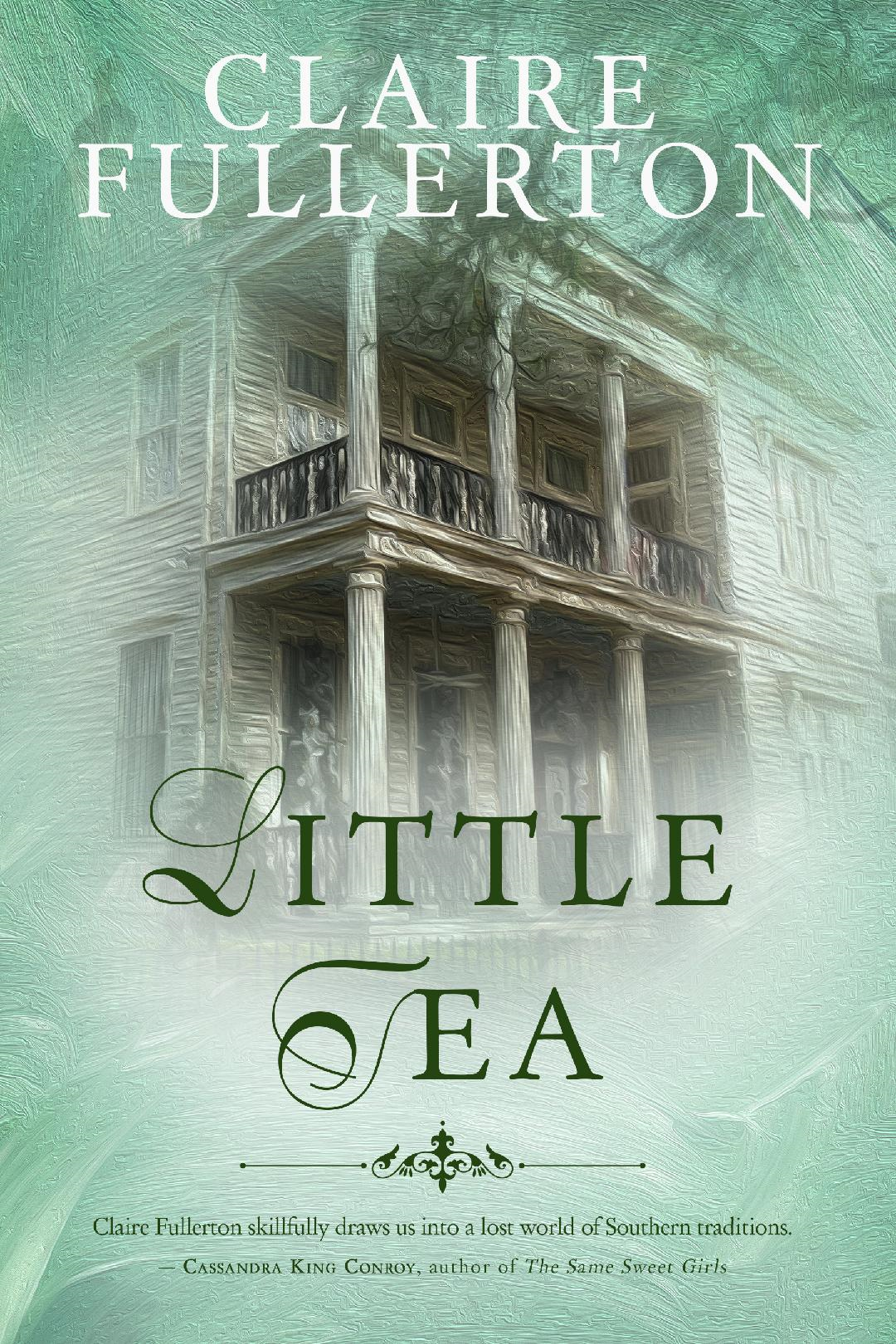


 Joseph Jones Photography
Joseph Jones Photography 